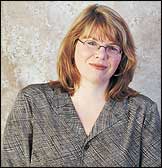 |
This has become a time of year when most Americans reflect on recent occurrences in the country’s history that launched a war against terror that has sent young men and women abroad to defend the freedoms that we, as a nation, hold dear. Unfortunately, part of the risk of combat often includes the sacrifice of life or limb and for more than 17,000 soldiers wounded since 2001, an estimated 2.5 percent are returning as amputees.
These amputees will often face months—perhaps years—of surgical procedures and rehabilitation to adjust to their altered bodies. None of this would be possible without new technologies and innovative approaches to physical and occupational therapy available at such exceptional rehabilitation hospitals as Walter Reed Army Medical Hospital (WRAMH), in Washington DC, and Brooke Army Medical Center (BAMC), in San Antonio, Tex. Both of these facilities offer traditional and progressive therapies to help recovering amputee soldiers build strength and confidence, as well as pursue more fulfilling lifestyles and activities.
For example, WRAMH recently offered a one-time therapeutic horseback-riding program—known as hippotherapy (from the Greek “hippo” for horse)—to recuperating amputee veterans. According to Josef Butkus, an occupational therapist at the hospital, the benefits of hippotherapy include improvement in balance and coordination, as well as helping to strengthen core muscles and enhance confidence. The riders find a “whole new center of balance”, while taking pressure off their injured limbs. The program received such positive feedback that WRAMH therapists are considering implementing therapeutic horseback riding on a long-term basis.
Meanwhile, Tex-based Operation Comfort (a nonprofit organization that helps the physical rehab of wounded service men and women by introducing them to adaptive sports) was planning a week of therapeutic surf lessons for a group of 13 seriously injured veterans from BAMC. The group was flown to Pismo Beach, Calif, where professional surfer Rodney Roller (himself an amputee) and volunteers from Billabong Surf School provided the soldiers with surf boards, wetsuits, and individualized coaching. After extensive preparation, they were released to negotiate the waves on their own. Several commented that it was the first time they’d felt independent since their injuries. According to Mark Heniser, a BAMC physical therapist who accompanied the surfers, the clinic was a success. “We challenge them each and every day in the rehab arena,” Heniser states in the Armed Forces Press Service. “They not only meet those expectations, they exceed them.”
The occupational and physical rehabilitation professionals, such as those at WRAMH and BAMC, have dared to think outside the box and take their therapy programs to the next level, thereby, benefiting their clients’ overall well being and giving them the mental and physical tools to enhance their daily lives.
In closing, I would like to take an opportunity to announce the October launch of Rehab Today, a weekly e-newsletter providing in-depth coverage of up-to-the-minute issues affecting physical medicine and rehabilitation professionals. [register]Sign up now[/register] and receive late-breaking news of the most current events, products, and innovations in the industry.
—Rogena Schuyler Silverman




